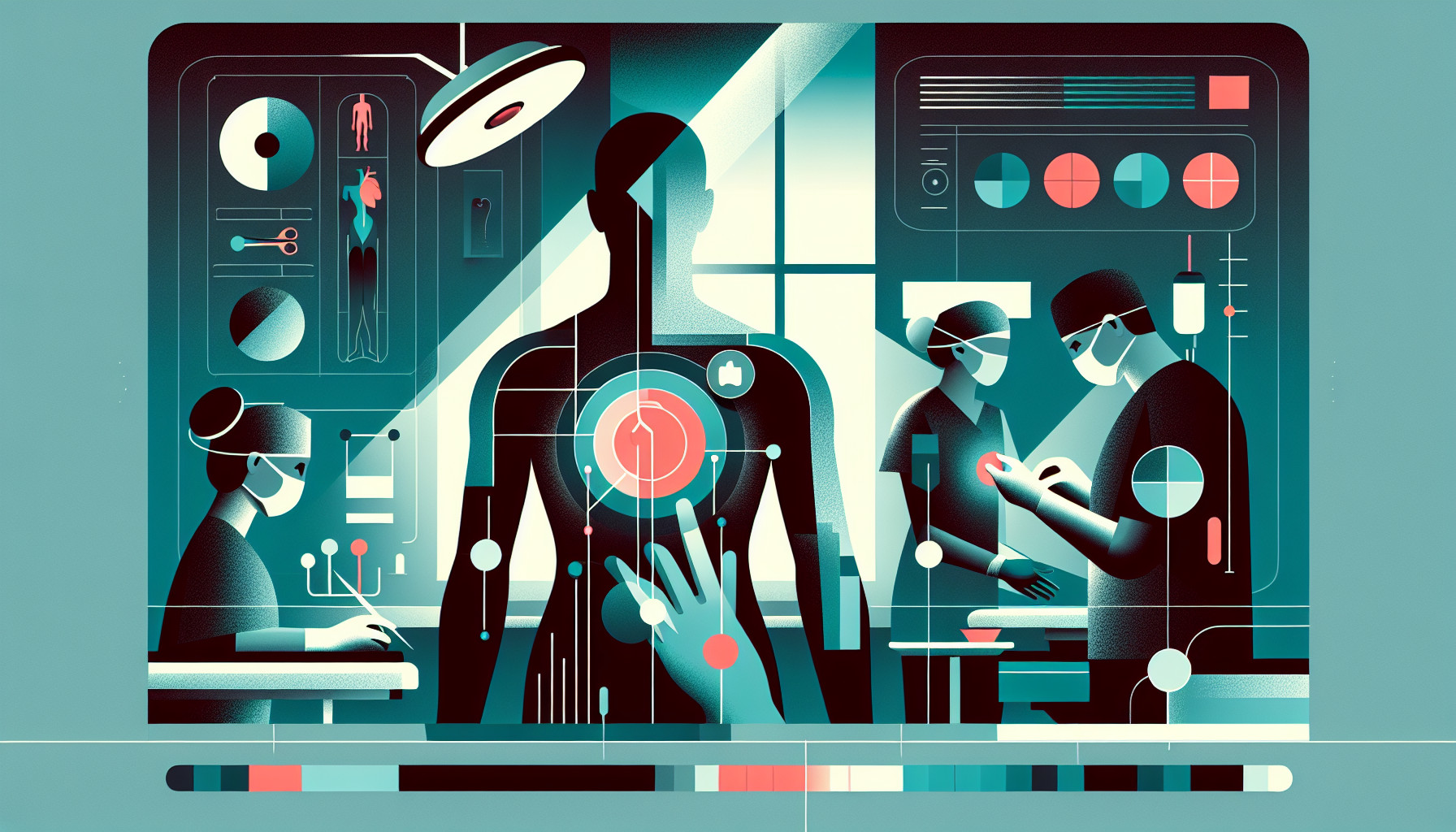Our Summary
This study reviewed a large number of articles (1608) about Crohn’s disease (CD), a long-term condition that causes inflammation of the digestive tract, and one of its complications: anal fistulas. Anal fistulas are abnormal connections between the inside of the anus and the skin around it, which can cause discomfort and other complications.
The researchers used various tools to analyze these articles, looking at where they were published, who wrote them, how often they were cited by other researchers, and what topics they covered. They found that most of these articles were published in the US and UK, with major contributions from institutions like the Cleveland Clinic and Imperial College London.
One of the main journals for this research was “Diseases of the Colon and Rectum”. The study also found that recent research has focused on surgical treatment, biologic therapy (using substances from living organisms to treat disease), new ways of imaging the body, and new biological treatments for CD.
The analysis shows that research in this area is moving towards a more combined approach to treatment. It highlights the need for more comprehensive studies comparing different surgical methods and more rigorous clinical trials to standardize treatments and make them available to a wider group of patients with CD.
FAQs
- What are the main topics of recent research on Crohn’s disease and its complications, such as anal fistulas?
- What are the primary locations and institutions contributing to research on Crohn’s disease and anal fistulas?
- What is the current trend in treatment approaches for Crohn’s disease and its complications, as revealed by this study?
Doctor’s Tip
A helpful tip a doctor might tell a patient about anal fistula surgery is to follow post-operative care instructions closely to promote proper healing and reduce the risk of complications. This may include keeping the area clean, avoiding straining during bowel movements, and taking prescribed medications as directed. It is important to attend follow-up appointments with your healthcare provider to monitor your progress and address any concerns. Additionally, maintaining a healthy lifestyle, including a balanced diet and regular exercise, can help support overall recovery and reduce the risk of future anal fistula complications.
Suitable For
Patients who are typically recommended anal fistula surgery are those with Crohn’s disease and associated anal fistulas that are causing symptoms such as pain, swelling, discharge, and recurrent infections. Surgery may be recommended when conservative treatments such as medications and draining procedures have not been effective in treating the fistula.
It is important for patients to be evaluated by a colorectal surgeon or gastroenterologist experienced in treating anal fistulas to determine the most appropriate course of treatment. Surgery may be considered for patients with complex or multiple fistulas, fistulas that have not responded to other treatments, or fistulas that are causing significant symptoms and impacting quality of life.
Overall, the decision to recommend anal fistula surgery is based on the individual patient’s symptoms, the location and complexity of the fistula, and the likelihood of successful outcomes with surgery. Patients should discuss the risks and benefits of surgery with their healthcare provider to make an informed decision about their treatment options.
Timeline
Before anal fistula surgery, a patient typically experiences symptoms such as pain, swelling, discharge, and fever. They may have undergone various treatments such as antibiotics, drainage of abscesses, and seton placement to manage the fistula.
After anal fistula surgery, the patient may experience some pain and discomfort in the surgical site. They will need to follow post-operative care instructions, which may include keeping the area clean, taking pain medication as prescribed, and avoiding certain activities that could strain the surgical site. Follow-up appointments with the surgeon will be necessary to monitor healing and address any complications that may arise. Over time, the patient should experience relief from their symptoms and improved quality of life.
What to Ask Your Doctor
Some questions a patient should ask their doctor about anal fistula surgery include:
- What are the risks and benefits of anal fistula surgery?
- What is the success rate of the surgery in treating anal fistulas?
- What type of surgery will be performed for my specific condition?
- What is the recovery process like after anal fistula surgery?
- Are there any potential complications or side effects I should be aware of?
- How long will it take for me to fully recover from the surgery?
- Will I need any follow-up appointments or additional treatments after the surgery?
- Are there any lifestyle changes I should make after the surgery to prevent future anal fistulas?
- What can I expect in terms of pain management during and after the surgery?
- Are there any alternative treatments or therapies available for anal fistulas?
Reference
Authors: Jin X, Han Y, Yang M, Ye Q, Wang Q, Zheng D, Mei Z. Journal: Int J Surg. 2025 Mar 1;111(3):2578-2589. doi: 10.1097/JS9.0000000000002238. PMID: 39869383
